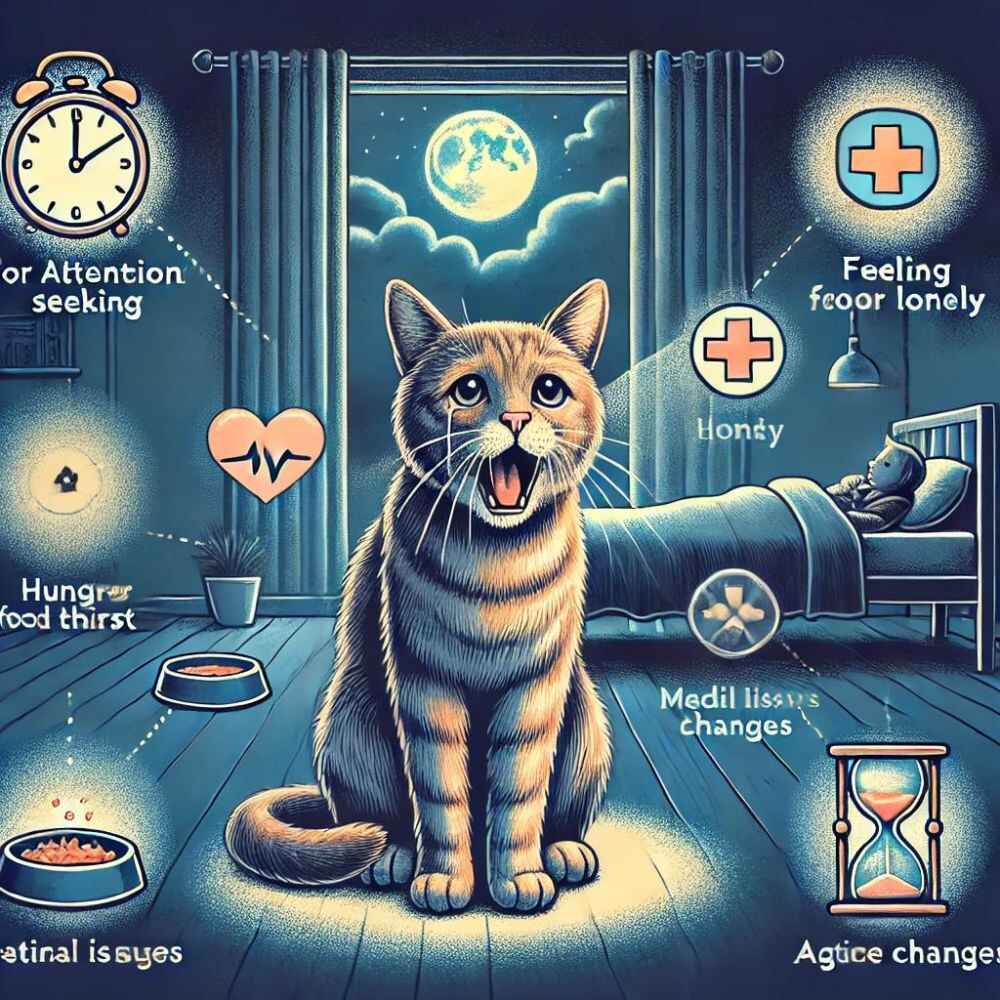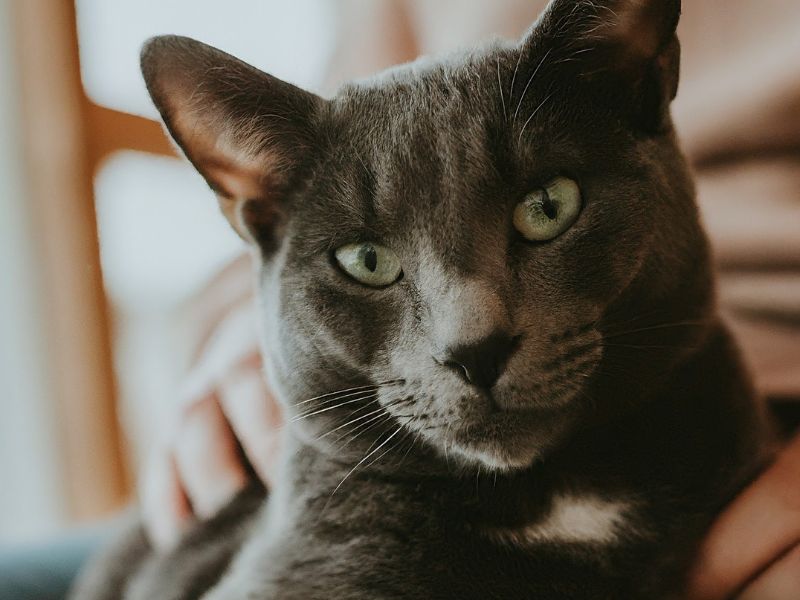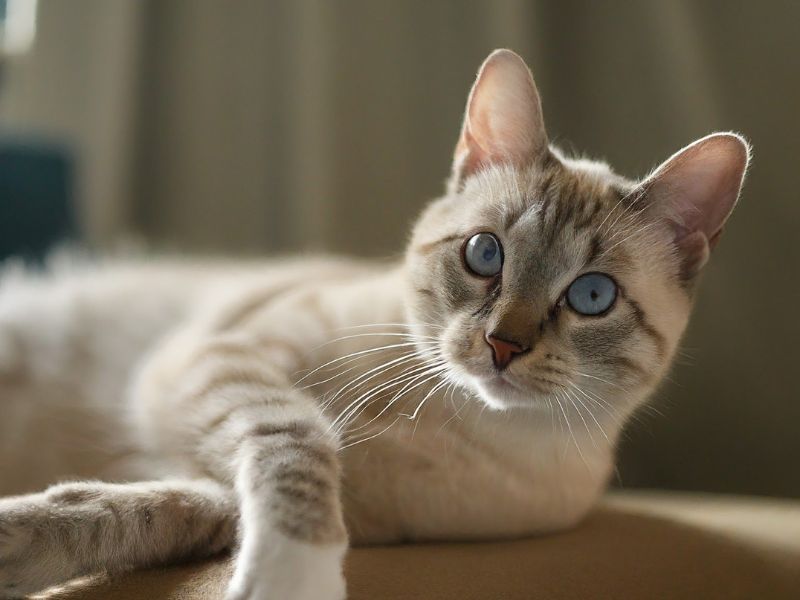Cats are known for their mysterious behavior, but if your male cat is crying at night, it can be frustrating and even a little worrying.
You’re probably wondering, “Why does my male cat cry at night?” Let’s dive deep into the reasons behind those meows and what you can do to help both you and your feline friend enjoy a peaceful night’s sleep.
Understanding the Nighttime Crying
So, your male cat is crying at night, and it seems like he’s trying to tell you something, right? Cats are most active creatures, during dawn and dusk.
This natural behavior might explain some of the midnight meowing, but there’s often more to the story. Let’s explore the most common reasons behind this puzzling behavior.
Common Reasons Male Cats Cry at Night
Seeking Attention
Cats are clever, and they know how to get your attention. If your cat cries at night, he might just be trying to grab your notice.
Maybe he’s looking for some late-night cuddles or wants to remind you that he’s still around. Cats can also become vocal if they feel they aren’t getting enough attention during the day.
Feeling Lonely
Is your cat crying while you’re tucked away in bed? He might be feeling a bit lonely. Cats are social animals, and while they may seem independent, they also crave companionship.
If your cat is used to having you around, being alone at night can feel isolating.

Hunger or Thirst
Imagine being woken up by hunger pangs in the middle of the night – not fun, right? The same goes for your cat. A male cat may cry if he’s feeling hungry or thirsty.
Cats tend to be grazers, and they might want a little midnight snack. Make sure your cat’s feeding schedule aligns with his needs.
Medical Issues
Pain or discomfort can also be a reason for a cat to cry at night. Conditions like arthritis, hyperthyroidism, or urinary tract infections can cause a cat to vocalize more, especially in the quiet of the night.
If the crying seems unusual or is accompanied by other signs like lethargy or changes in appetite, a visit to the vet is necessary.
Mating Behavior
If your male cat is not neutered, the nighttime crying might be related to mating behavior. Male cats will cry or howl if they sense a female in heat nearby.
This is how they communicate with potential mates and staking their territory against other male cats.
Boredom
Yes, cats get bored too! If your male cat is left without much stimulation during the day, he may become restless at night. Cats are natural hunters and need activities that mimic this behavior.
Without proper mental and physical stimulation, they may become vocal to express their frustration.
Dr. John Bradshaw, author of “Cat Sense,” argues that many cats cry at night simply because they are bored. “Cats are hunters by nature, and they need mental and physical stimulation to feel satisfied,” says Dr. Bradshaw
Age-Related Changes
As cats age, they can experience cognitive changes that may cause them to become more vocal, especially at night.
Just like humans, older cats can suffer from cognitive dysfunction, which can lead to confusion and anxiety, often manifesting as nighttime crying.
According to a study in the Journal of Veterinary Internal Medicine, feline cognitive dysfunction affects more than 50% of cats over the age of 15. Symptoms include increased vocalization, disorientation, and changes in sleep patterns, all of which can contribute to nighttime crying.
Territorial Instincts
Male cats are particularly territorial. They may cry at night if they sense another cat nearby, even if that cat is outdoors. This is a way of marking their territory and warning other cats to stay away.

How to Help Your Cat and Yourself Sleep Better
Now that you know some reasons why your male cat might be crying at night, let’s explore ways to address the issue and help both of you get a good night’s sleep.
Play and Exercise
A tired cat is a quiet cat. Make sure your cat gets plenty of exercise during the day. Use toys, laser pointers, or even just a piece of string to engage in interactive play sessions.
This helps burn off excess energy and reduces the chance of nighttime meowing.
Feeding Schedule Adjustments
Try feeding your cat a larger meal before bedtime. This can help keep his stomach full through the night.
You might also consider a timed feeder that provides a small meal in the middle of the night to prevent hunger-induced crying.
Create a Comfortable Sleeping Environment
Make sure your cat has a cozy and quiet place to sleep. Consider adding a soft bed, a favorite blanket, or even a heated pad for extra comfort.
Cats love warm and snug spots, so make their sleeping area as appealing as possible.
Use of Cat Pheromones
Products that mimic natural cat pheromones can create a calming effect and reduce anxiety or stress-related behaviors like crying at night.
These products come in sprays, diffusers, or collars and can make your cat feel more at ease.
Visit to the Vet
If your cat’s nighttime crying is persistent and you’ve tried everything, it might be time for a vet visit.
Your vet can rule out any medical conditions and provide additional advice tailored to your cat’s specific needs.

Understanding Cat Communication
Cats use vocalization as a form of communication with humans. When your cat cries at night, he’s trying to tell you something. Think of it as his way of speaking his mind.
It could be about his needs, his environment, or his emotions. Understanding his meows, chirps, or purrs can help you better address his concerns.
When to Be Concerned
Not all nighttime crying is benign. If your male cat’s crying is accompanied by symptoms like limping, vomiting, diarrhea, or unusual aggression, it could indicate a more serious problem.
Always consult your vet if you notice any concerning changes in behavior.
Conclusion
If your male cat cries at night, don’t ignore it – listen! His meows are his way of communicating with you. Whether it’s hunger, loneliness, a medical issue, or just the need for extra love, your cat might be vocalizing for many reasons.
By understanding the cause and taking steps to address it, you can ensure both you and your furry friend enjoy peaceful nights. So, next time your cat starts his midnight concert, you’ll know just what to do!
FAQs
- Why does my cat cry only at night and not during the day?
Cats are naturally more active at night, and this could be due to their hunting instincts, boredom, or even loneliness when the house is quiet. - Should I ignore my cat’s crying at night?
Ignoring your cat may sometimes help, but if the behavior persists, it’s essential to find out the underlying cause. Never ignore if there are signs of distress or illness. - Will neutering my male cat stop the nighttime crying?
Neutering can reduce mating-related behaviors, including crying, especially if it’s due to the desire to mate. However, other factors might still cause vocalization. - Can anxiety cause my cat to cry at night?
Yes, anxiety can lead to nighttime crying in cats. Stressors such as a new environment, changes in the household, or the absence of a loved one can trigger anxiety. - What can I do to help my older cat who cries at night?
Older cats may cry due to cognitive changes. Providing a stable routine, enriching their environment, and consulting with your vet for potential treatments can help.
